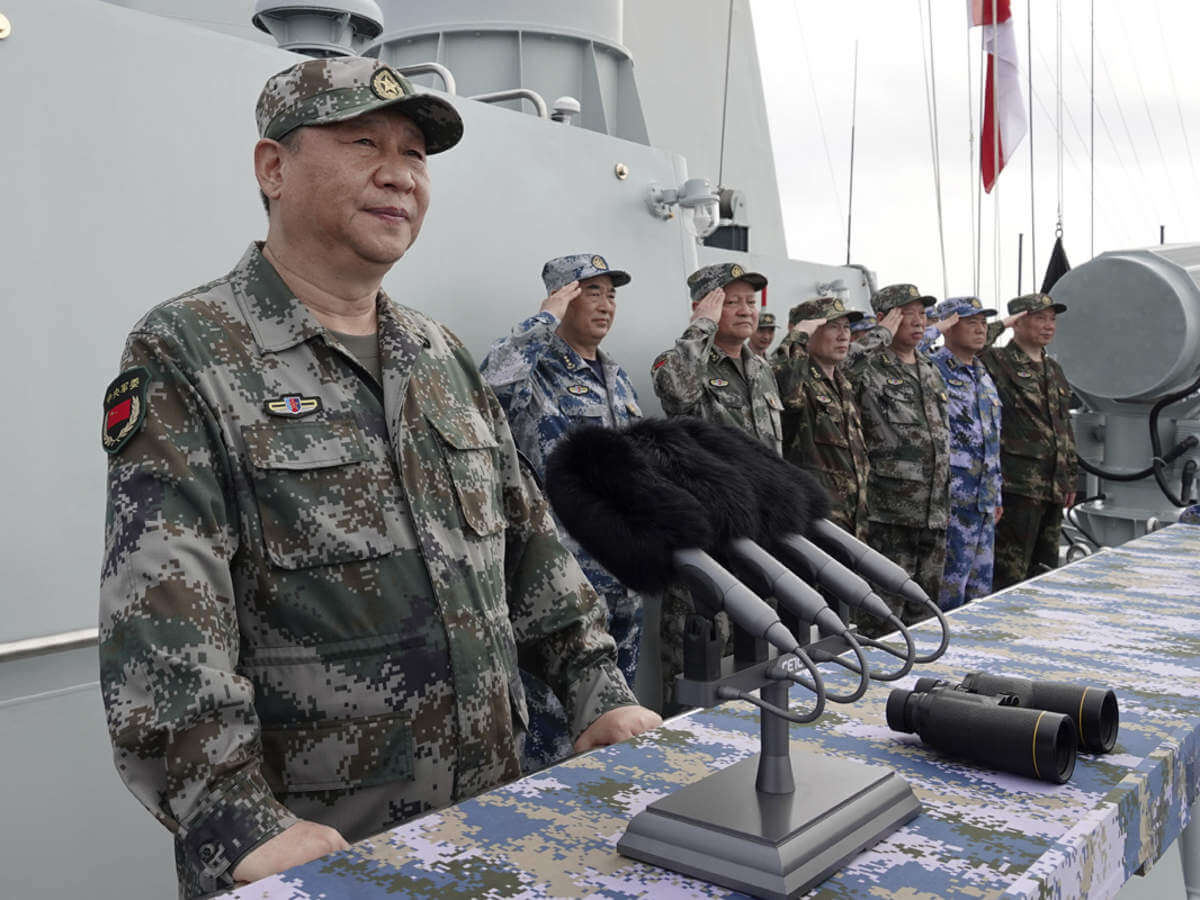China recently amended its National Defence Law (NDL) to expand the powers of its armed forces, which is headed by President Xi Jinping. The new amendment was brought into effect on January 1 and allows for the mobilization of military and civilian resources to defend its national interests both at home and abroad.
Further, the Hong Kong-based South China Morning Post reported that the amendment also weakens the role of the State Council, headed by Premier Li Keqiang, in “formulating military policy, [thereby] handing decision-making powers to the Central Military Commission (CMC), the overall high-command of the two million-strong People’s Liberation Army (PLA) headed by Xi”.
The amendments for the NDL were passed on December 26, 2020, by the Standing Committee of the National People’s Congress (NPC). They have made Xi, the only civilian leader in the CMC, the most powerful Chinese leader since Mao Zedong. He now holds the posts of the Communist Party of China (CPC) General Secretary, and the head of the military and government, with prospects of life-long tenure.
Earlier media reports had suggested that by 2027, which also marks the 100 year anniversary of the founding of the PLA, “China will build a fully modern military, a goal that is in alignment with the national strength and will fulfil the future national defence need.” According to political and military analysts, the new NLD strengthens China’s military leadership under Xi, “providing it with the legal grounds to respond to the challenges of accelerating confrontations between China and the US.”
Further, it also specifically accommodates the building of “a nationwide coordination mechanism for the mobilisation of state-owned and private enterprises to take part in research into new defence technologies covering conventional weapons, as well as the non-traditional domains of cybersecurity, space and electromagnetics”.
China-US tensions have been running high, especially since Donald Trump took office in 2016. At the virtual meeting of the ASEAN Forum last September, Chinese Foreign Minister Wang Yi said that the US was the “biggest driver of militarisation of the South China Sea (SCS)” and “most dangerous factor damaging peace” in the region. The Chinese foreign minister further noted that the US had sent “3000 sorties of military aircraft and over 60 warships” to the SCS in the first half of 2020, positing that the US was intervening in territorial disputes and strengthening its military deployment in the contested area “out of its own political purposes.” Pompeo, in turn, asked ASEAN “to go beyond words and act against China’s bullying”, promising that the US will back them up.
Hinting strongly at this contentious relationship, a report by state-owned outlet Global Times says that the new law “shows the country’s sense of global justice”. The report also states that China can be “expected to make itself heard more on global justice in addition to its own, and will play a unique role in safeguarding world peace at a time when evil forces are ravaging it”.
China Revises National Defence Law, Expanding Power of Its Armed Forces
Chinese President Xi Jinping amended the National Defence Law this past week to give the Central Military Commission (CMC), which he heads, greater control over China's armed forces.
January 4, 2021

SOURCE: CNN
